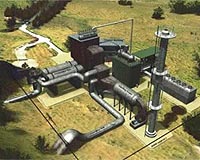 |
Tokyo (AFP) Oct 25, 2010 Japan said Monday it had lodged a protest with Beijing after spotting two Chinese fisheries patrol boats near a disputed island chain at the centre of a bitter row between the Asian giants. "Last night around 9:00 pm (1200 GMT) our coastguard sighted them and afterwards the two (Chinese ships) left there and sailed north toward China," Japan's top government spokesman Yoshito Sengoku said. "After the incident we launched a protest through diplomatic channels," Sengoku, the chief cabinet secretary, told a regular press conference. Beijing and Tokyo have been locked in their worst spat in years that started after Japan arrested a Chinese trawler captain on September 8 near the uninhabited island chain in the East China Sea. Amid the row, nationalist street demonstrations have been held in both countries, with protesters again rallying in China at the weekend, chanting anti-Japanese slogans and calling for boycotts of Japanese goods. In Japan, the Chinese embassy has received an envelope with a bullet and an anonymous note that warned, "Don't come near the Senkaku islands" -- the second time such a threat was sent -- Jiji Press reported, citing police sources. The row started when Japan arrested the Chinese captain near the Japan-administered islands, known as Senkaku in Japan and Diaoyu in China, after his ship had collided with two Japanese coastguard vessels. China reacted with a barrage of diplomatic protests and snubs and other punitive steps and first dispatched two fisheries patrol boats on September 23 to waters near the islands. It withdrew the boats after Japan released the captain. But last week Japanese media reported that China had again dispatched boats on October 14 -- thought to be the ones Japan is now protesting about -- with the aim of "protecting the legal rights of Chinese fishermen". The Japanese government spokesman reiterated Tokyo's position in the row over the islands, which are located in rich fishing grounds and near suspected gas deposits, in waters between Japan's Okinawa island and Taiwan. "There is no doubt at all that the Senkaku Islands are an integral part of Japanese territory historically and under international law," he said. "We are going to continue taking the necessary precautions and (conducting) surveillance." Asked about the wording of the protest, Sengoku said Japan told China that it disapproved of its ships sailing near the islands, saying: "What's the purpose? Such activities are no good, are they? We have told them this." The two economic giants and major trade partners have at various times in recent weeks sought to de-escalate the row. Japan's Prime Minister Naoto Kan held a brief meeting with Chinese Premier Wen Jiabao in Brussels early this month, and officials in Tokyo say both countries are seeking to arrange a formal summit later this week in Vietnam.
Share This Article With Planet Earth
Related Links Powering The World in the 21st Century at Energy-Daily.com
 Australia approves 30 billion dollar coal gas projects
Australia approves 30 billion dollar coal gas projectsSydney (AFP) Oct 22, 2010 Australia Friday approved two multi-billion dollar coal gas projects with strict environmental conditions, clearing the way for exports of millions of tonnes of clean-burning energy to Asian countries. Environment Minister Tony Burke imposed more than 300 conditions to protect ecological treasures such as the Great Barrier Reef as he gave the go-ahead to BG Group and the Gladstone Liquefied ... read more |
|
| The content herein, unless otherwise known to be public domain, are Copyright 1995-2010 - SpaceDaily. AFP and UPI Wire Stories are copyright Agence France-Presse and United Press International. ESA Portal Reports are copyright European Space Agency. All NASA sourced material is public domain. Additional copyrights may apply in whole or part to other bona fide parties. Advertising does not imply endorsement,agreement or approval of any opinions, statements or information provided by SpaceDaily on any Web page published or hosted by SpaceDaily. Privacy Statement |